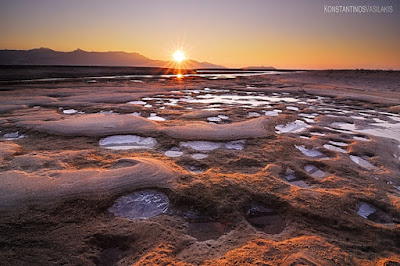Scientists have a new theory that suggests where did all
the water on the Mars go? This topic becomes more viral and a big question in everyone’s
mind.
Billion years ago, scientists thought that Mars
had more water than it is now. So what happened to that water? Mars is now a
frozen and dried land which is inhabitable for life. But it had water as long
years ago; there must be a root of life. As previous researches said water on
the Mars was lost due to deteriorated magnetic field, solar wind and radiation
stripped by Martian atmosphere. It suggests that there should be a supported
environment for life to hostile as we know today. But this theory fails to
explain where did all the water on the Mars go?
Recently, the new theory proposed by “Oxford’s Department
of Earth Science” suggests that the Martian surface may have absorbed the water
of the planet.
The research is based on computer modeling techniques
that could be help to calculate how much of water is removed from the Martian
surface through the reaction of rocks. They found that the basalt rocks can
absorb 25% of water than those on Earth. And this is the main reason why we
couldn’t see the water on the Mars.
There are many evidences that could be leading us to believe
that a different reaction is needed to oxidise the Martian mantle. The people
had the question about this concept but they didn’t try to test the theory
about the reaction of simple rocks which can absorb the water.
Due to temperature, pressure, and the chemical reaction
on Mars results of sucking of water by rocks. Martian rocks can hold water to
greater amount as compared to the rocks on the Earth. Mars and Earth are similar
many conditions but they are different when compared to their temperatures and
geological chemistry. Earth has low iron content than the mantle rocks of Mars
and this results to the Earth that it doesn’t experiences conditions as Mars.
“The Earth's current system of plate tectonics prevents
drastic changes in surface water levels, with wet rocks efficiently dehydrating
before they enter the Earth's relatively dry mantle,” said Dr Wade. But this
couldn’t have in early stages of the Earth and Mars that the water reacting
with the freshly erupted lavas' which can form basaltic crust resulted in a
giant sponge like effect. Then this spongy rocks reacted with water to form a variety
of water bearing minerals this could be changing the red planet to become dry
and inhospitable for the life.








0 on: "Scientists predicted where did all the water on the Mars go?"